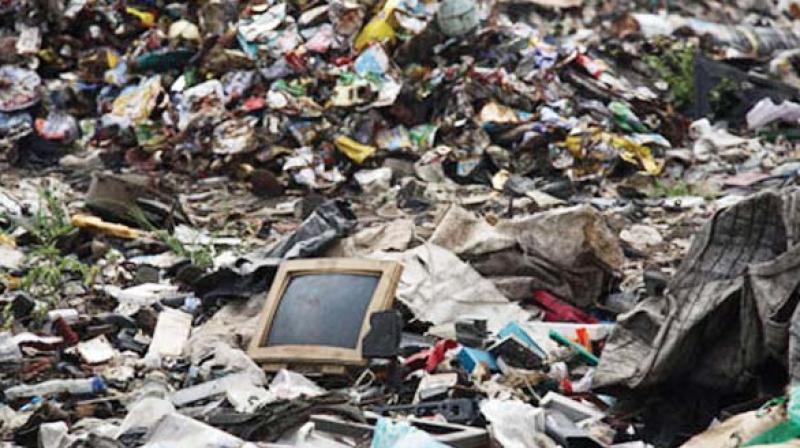Only 10 per cent of Bengaluru's e-waste is treated, says NGO

Bengaluru: If India is today the fifth largest producer of e-waste in the world, Bengaluru is the third highest producer of it in the country , only after Mumbai and Delhi. And here's the shocker : Only 10 per cent of the city's 37,000 metric tonnes of e-waste is treated, says an NGO, Environmental Synergies in Development (Ensyde).
With the rest of e-waste finding its way into water bodies, the city's groundwater could be in danger of contamination, activists rightly warn.
"If not properly disposed, the lithium that is found in mobile phones and computer batteries could leach through the soil to reach groundwater, which local communities often depend on for drinking. This could be a serious health hazard," says Mr Mahesh Kashyap, a consultant with Centre for Sustainable Development. Pointing out that e-waste is one of the fastest growing waste streams in the world, Mr Pranshu Singhal, founder of Karo Sambhav, an e-waste producer responsibility organization, says as much as 95 per cent of e-waste is handled by the informal sector in ways that are harmful to the environment. " With growing e-waste, the number of impacted livelihoods in the informal sector will also grow," he warns.
Thankfully, the Union Ministry of Environment, Forests and Climate Change proposed amendments to the rules on e-waste management last year to allow the e-waste recycling ecosystem in India to build its capacity and meet targets.
"The proposed rules will enable producers to make an informed choice in picking a responsible recycling partner, who offers the best available technology instead of working with any authorised recycler to meet the collection targets. This minimizes the risks involved in working with an industry which has lacked the required scale and competence" Mr Singhal explains, welcoming the fact that the amended rules provide clarity as well on the penal provisions for violation of the e-waste management regulations.

